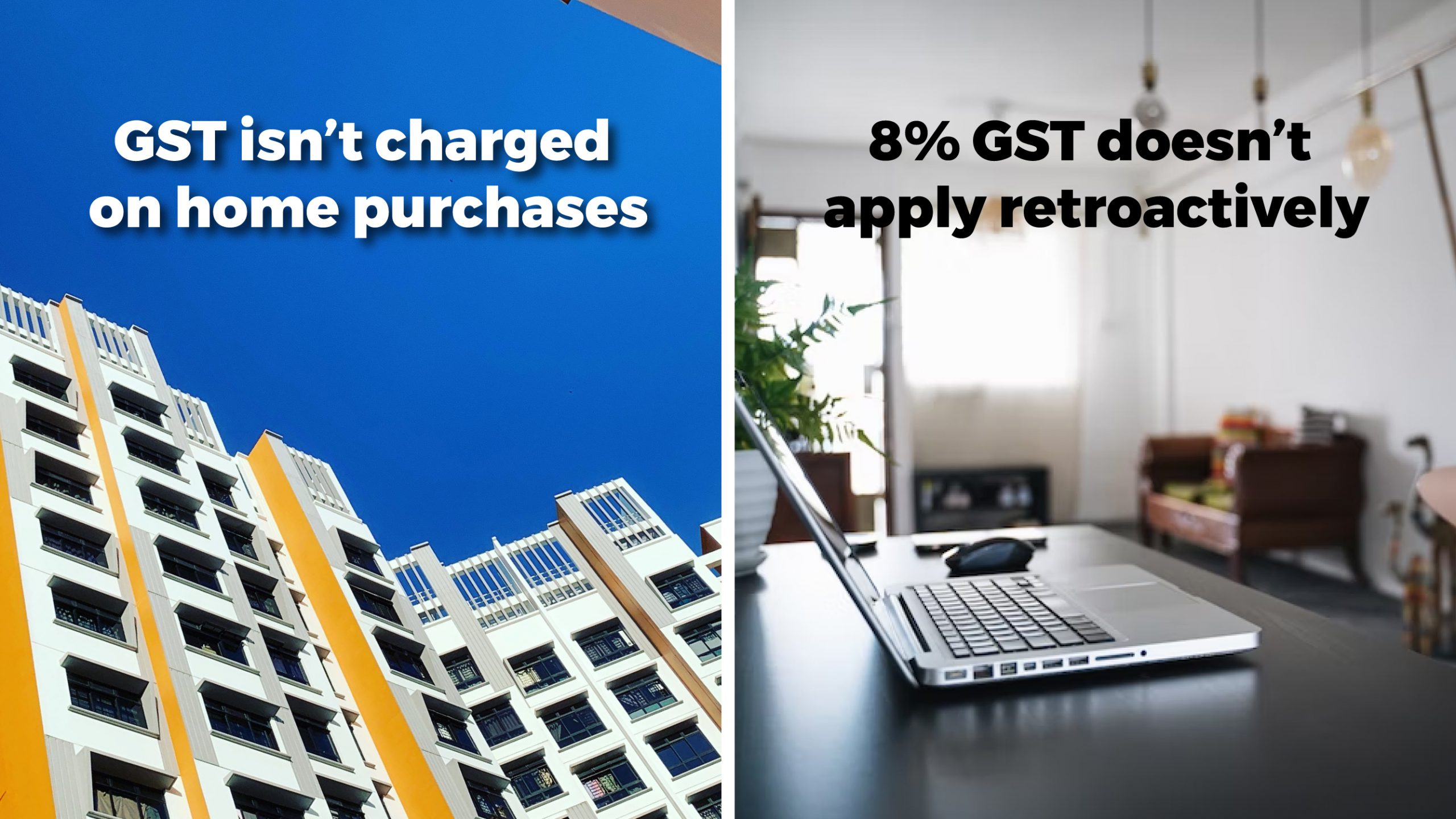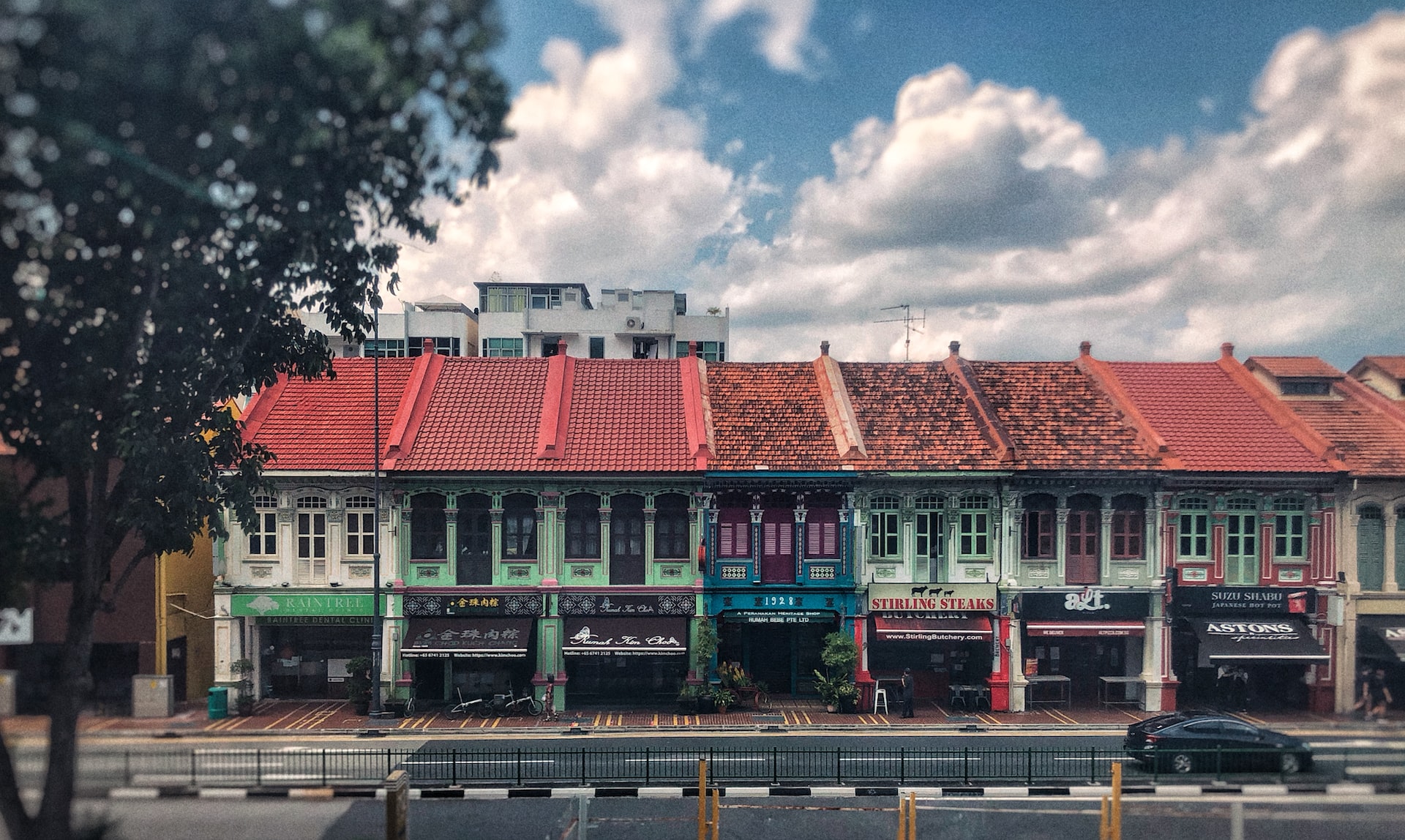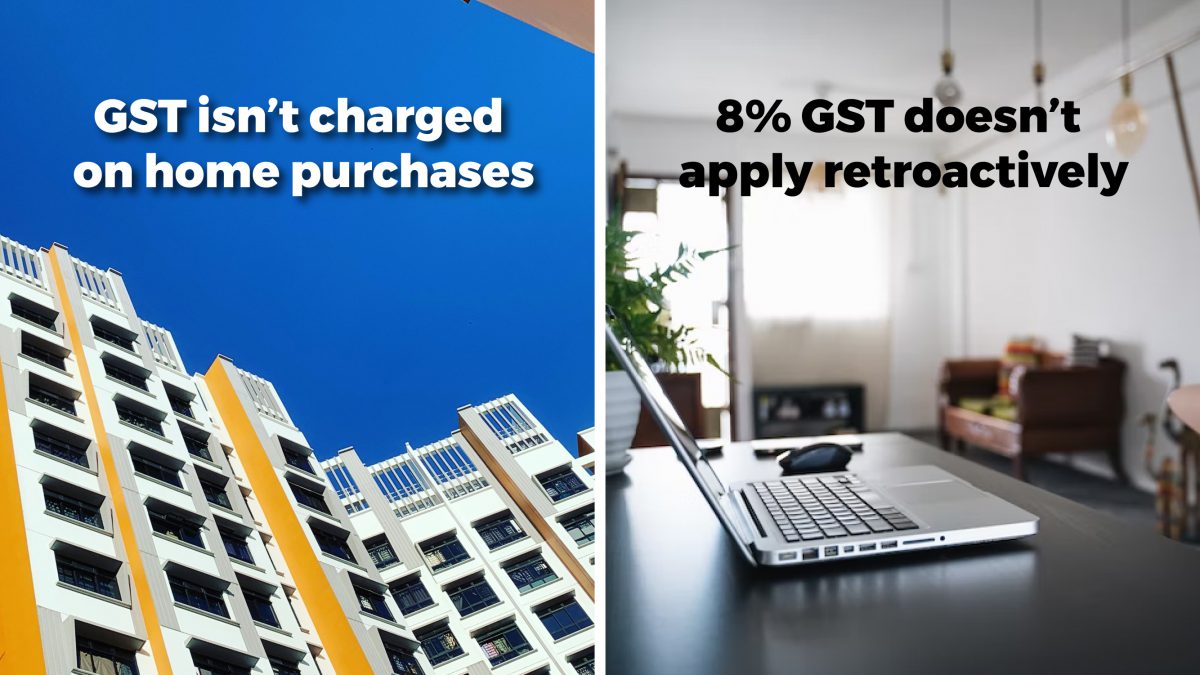Though 2022 has come and gone, its events continue to bear weight today. For instance, the Goods and Services Tax (GST) rate hike was announced during last year’s Budget Speech, only to kick in on the first day of the new year.

This news about the GST increase from 7% to 8% on 1 Jan 2023 – and eventually, to 9% from 1 Jan 2024 onwards – saw Singaporeans finding ways to lighten the combined load of rising inflation as well as the increased cost of consumption.
While some went on a shopping spree at the turn of the year, others made the most of discounts offered by both online and physical retailers.
Which brings us to the question, with regards to the GST hike, what should Singapore property owners and buyers take note of? The facts are as follows.
1. The sale or lease of residential properties isn’t subject to GST
If you’re an interested homebuyer and/or property investor who is keen on purchasing a new dwelling in 2023, good news!
Despite the increase in the GST rate, making an addition to your real estate portfolio still won’t incur any GST on your part – but only provided that the property you’ve bought is for residential use.
As outlined within the Inland Revenue Authority of Singapore’s (IRAS) webpage pertaining to GST and real estate, the buying of either vacant residential land, residential buildings, flats, or tenements is exempt from Singapore’s (currently) 8% tax on domestic consumption.

Or put even more precisely by IRAS, what counts as a residential property includes the following:
- Houses in which people live in (e.g. bungalows)
- Workers’ quarters
- Halls of residence (i.e., student dormitories)
- Serviced apartments
- Upper floors of shophouses approved as living quarters
Additionally, homeowners renting out their dwellings for passive income will be pleased to know that the lease of residential properties is also exempt from GST.
On a related note, however, lessors should also be aware that earnings received from such leasing and/or subletting arrangements may still be subject to income tax.
2. GST will be accounted for the rental of movable furnishings and fittings
Given that the sale and rental of bare residential properties aren’t subject to GST, it stands to reason that the same ruling applies to the items contained within said dwellings, yes? Well, not so fast, because the answer isn’t what you’d expect.
Hike or no hike, per existing rules set by IRAS, GST will still be incurred on any movable furnishings and fittings supplied within a residential property that has been sold or rented out by a GST-registered owner.

So, for instance, if the upper floor of a shophouse that’s approved for residential use is leased out with a refrigerator, washing machine, and dryer, GST has to be charged on all of the aforementioned items, provided its lessor is authorised to include GST into the prices of its products and/or services.
Conversely, items within the same residential shophouse floor that can’t be moved are GST-exempt; some examples include permanent fixtures like cabinets and wardrobes, wall-mounted air conditioning units, as well as sanitaryware.
3. Which GST rate to use depends on when payment is made
Considering the new GST rate of 8% has already kicked in, one interesting fact to know is that it doesn’t apply retroactively. Which is to say: payments made before 1 Jan 2023 for transactions that are billed in phases will still adhere to the previous rate of 7%.
According to IRAS, this is generally the case for applicable goods and services provided by GST-registered businesses “where one or more or more of the following events takes place wholly or partially on/after 1 Jan 2023”.

Said events include 1) the issuance of an invoice, 2) the receipt of payment, and 3) the delivery of goods or performance of services.
In the context of real estate, this matters for the sale or lease of non-residential properties, both of which are activities that are subject to GST.
Let’s say you bought a coffeeshop where the option to purchase was exercised before 1 Jan 2023, but the date of completion is after 1 Jan 2023; the old GST rate (i.e., 7%) applies to the option money paid, whereas the new GST rate (i.e., 8%) takes effect only for all payments made after the rate change date. So, take note!


